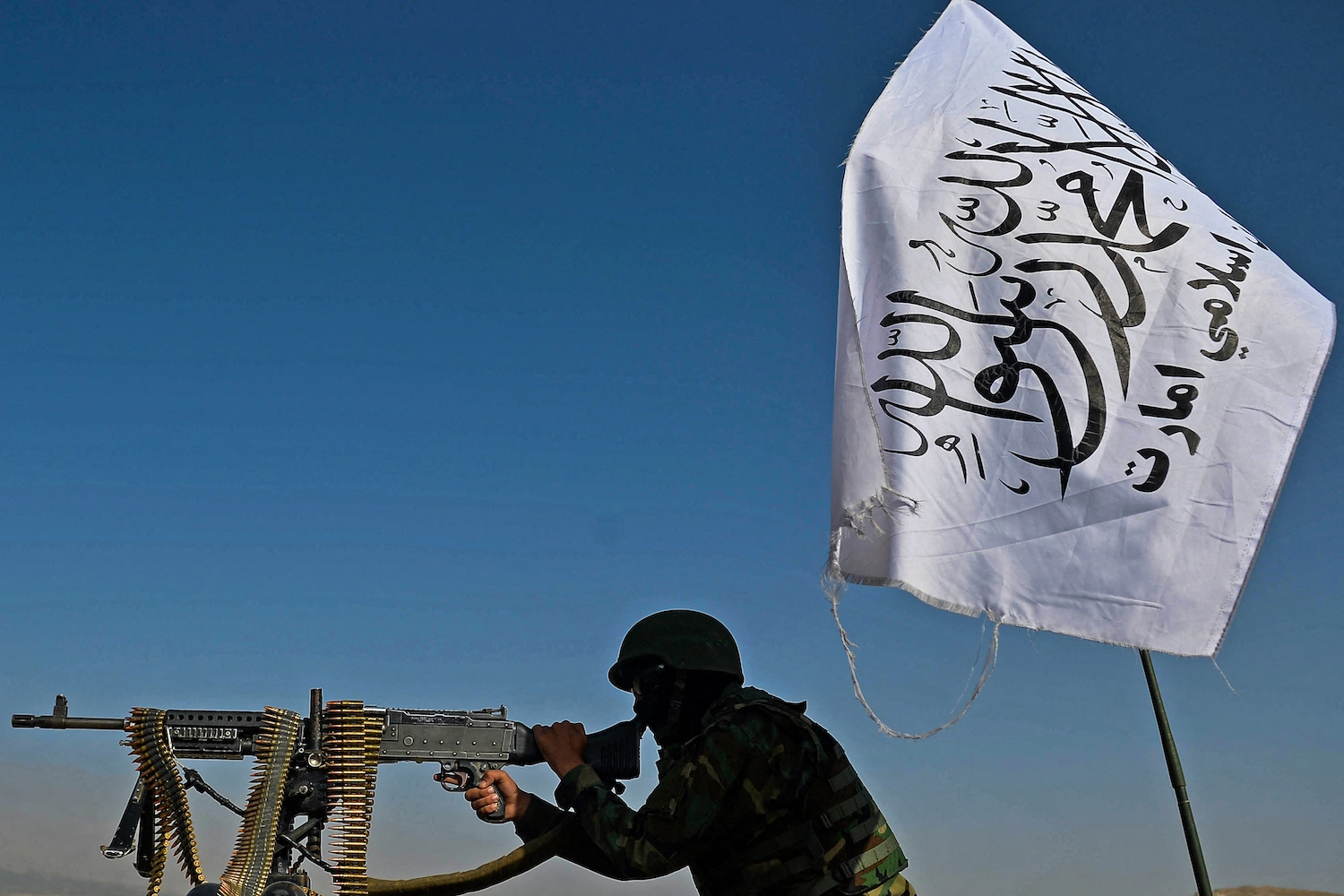It’s getting difficult to determine which one among Pakistan’s myriad crises will finally engulf the country. Inflation is hitting historic highs, unemployment is pushing young men into the ranks of extremists, the military is torn between its loyalty to the state and the terrorists it helped create, and leading politicians are engaged in a battle for mutual destruction. The reality is that Pakistan is fighting for its survival.
It’s been dubbed one of the most dangerous countries in the world so often that when U.S. President Joe Biden repeated the epithet in October, he seemed to simply be stating the obvious. The Pakistani Army aims to drive out terrorists that were driven out a decade ago. The government is raising loans to pay interest on loans it took out earlier to pay interest on previous loans. The country’s politics, meanwhile, make its fiscal management look responsible. Pakistan is nuclear-armed, teetering on bankruptcy, and running low on hope that countries it calls friends will save it from itself.
“The biggest crisis Pakistan is facing right now is the credibility crisis,” said journalist and analyst Asad Ali Toor. “People have lost faith in all the institutions and important offices of state.”
In the midst of perpetual chaos, there is, apparently, one thing the fractious political class can agree on—the need for a radical change of policy for dealing with militant Islam, the latest threat to the Pakistani state. They just can’t agree on how.
The main threat comes from the Tehrik-i-Taliban Pakistan (TTP), affiliated with groups like al Qaeda and its Afghan Taliban acolytes who returned to power in Kabul a year and a half ago. The TTP is based across the border and armed with weapons left behind by the retreating U.S. military in August 2021. A TTP attack in Peshawar on Jan. 30 killed and injured scores of police officers as they prayed—the biggest of recent attacks on Army and police positions that have sent the people of the northwestern mountains out onto the streets to call for peace and protection. As if that weren’t enough, there are also Baloch separatists, who are taking advantage of the government’s weakness to intensify attacks in Pakistan’s southwest.
Incapable of solving the economic crisis that’s one of the driving causes of the reemergence of extremism, the government earlier this month announced, to an outcry of opposition, that plans for “all-out comprehensive” military counterterrorism operations nationwide will be drawn up. It’s an acknowledgment, as attacks and casualties mount, that attempts at a diplomatic solution, mediated by sanctioned terrorist and Taliban Interior Minister Sirajuddin Haqqani, have failed. The TTP ended a cease-fire in November; the number of people killed and injured in attacks just in the first quarter of this year was half as many as all of last year, with most in Khyber Pakhtunkhwa and Balochistan, local media reported.
This being Pakistan, there’s little unity behind the opposition to military action. Parties representing ethnic Pashtuns, who dominate the northwest, say residents will bear the brunt of military operations, as they did in 2014 when counterterrorism assaults displaced thousands of people. Others want past civilian and military leaders called to account for the consequences of those operations before any new campaigns are launched. Still others, like Imran Khan, a charismatic former cricket star whose term as prime minister ended a year ago when he lost a parliamentary no-confidence vote, say it’s a ruse by current Prime Minister Shehbaz Sharif to delay elections that Khan’s Pakistan Tehreek-e-Insaf (PTI) party would likely win.
“There is no consensus; everybody understands that there has been a spike in militant violence, but there is disagreement on how to deal with this problem,” said Farzana Shaikh, an associate fellow and expert on Pakistan and Afghanistan at London’s Chatham House think tank. “Even before the last government, there was concern that these operations don’t lead anywhere, that they cause a great deal of violence and are followed by a stalemate that allows these groups to re-militarize.”
The newly appointed chief of the Army staff, Gen. Syed Asim Munir, arguably the most powerful man in the country, has conceded that attempts to negotiate with the TTP have failed, but he is unlikely to repeat the heavy-handed approach of 2014, said Toor, the analyst.
“In recent appearances before the Parliament, Gen. Munir has explained that the military is not going to launch any new operations against militants, but in fact his approach signals a continuity of the same ongoing intelligence-based operations to target militants’ hideouts,” he said. But no matter what form the counterterrorism operations take, unless there is a major policy shift, any action by the military will be seen in the context of its historical support for militant groups and far-right religious parties to achieve its goals, Toor said.
The common thread is a recognition that Pakistan’s policy on Afghanistan has failed spectacularly. For more than 20 years, Islamabad, and especially its Army and secret services, sought strategic depth against India by playing in the Afghan sandbox. But Pakistan is now at war with the terrorists that the Army and the secret services helped create and once believed they controlled. Effective options are severely limited. Military action that includes strikes on the TTP’s safe haven bases across the border in Afghanistan would exacerbate tensions with Taliban leadership in Kabul; destabilize the border; force even more Afghans to flee into Pakistan, swelling the millions of Afghan refugees already in the country; and risk a regional conflagration.

